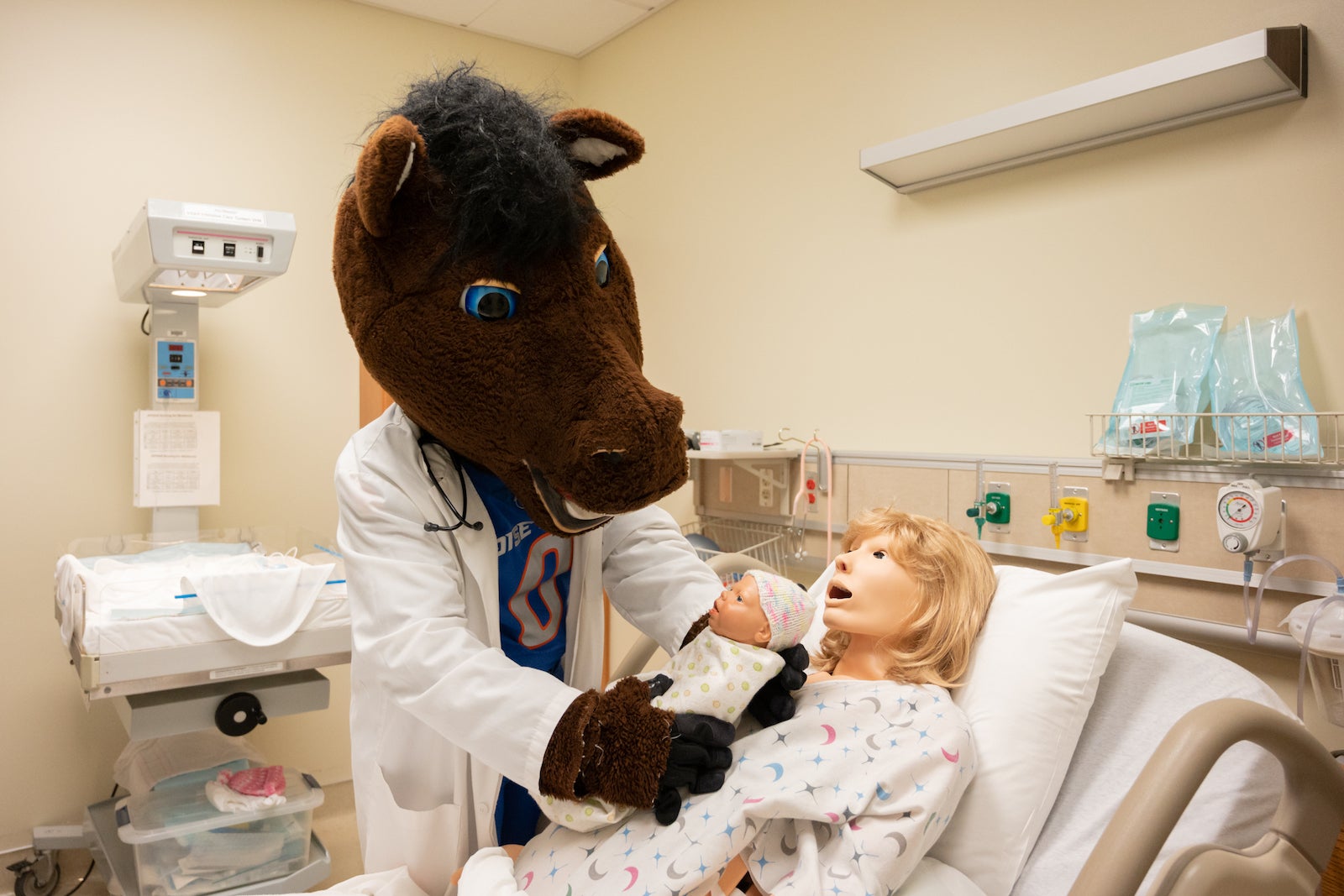
Idaho businesses and classrooms are starting to look ahead and plan for when they can reopen their doors to the community. At Boise State, The School of Nursing has tried to stay ahead of the curve and develop solutions for the fall term before spring classes end. In particular, the School of Nursing is preparing alternative ways to provide students with direct patient care experiences, which are necessary for clinical education outcomes. Nursing students typically “shadow” a working nurse in a clinical setting as part of their degree, but due to recent safety restrictions in many clinics and hospitals, students are unable to enter these areas. The School of Nursing is proactively planning ways to continue meeting program outcomes while complying with enhanced safety measures due to pandemic response.
In early April, 10 leaders came together to create the School of Nursing Rapid Response Think Tank with the goal to have a plan for providing clinical education for nursing students, as well as tackle other challenges caused by the COVID-19 pandemic. The team is led by Shelle Poole, an associate professor and associate divisional dean of the School of Nursing, and includes faculty and staff. The team has moved fast and hard, meeting in teams almost every day to quickly address rising problems with creative solutions.
The team developed a list of the most likely outcomes for the fall semester, settling on two scenarios: a return to campus and the local healthcare systems (with social distancing and health screening), or an online semester with students briefly returning to Idaho healthcare systems for conference-style clinical experiences. As with many major actions taken by the university, the school is taking a student-centered approach: faculty and leadership have hosted regular “coffee talks” over Zoom for undergraduate students to ask any questions and voice their concerns over recent changes. Based on student feedback, these sessions have been valuable for students and more are planned in the future.
“We are living in a new world order and we need to design for that reality, because our healthcare systems need our nurses,” Poole said.
In addition to providing support for their students, the team has prioritized support and communication for their staff and faculty.
“Don’t let change roll you over. By being proactive, you provide support for staff and faculty. It provides a safety net so they know things are going to be organized when they come back,” said Jayne Josephsen, a professor in the School of Nursing and member of the think tank.
Nursing leadership has hosted regular Zoom meetings with staff and faculty to keep them informed of major changes, and provide an open forum for voicing questions and concerns.
In an April 27 presentation to Tim Dunnagan, dean of the College of Health Sciences, and Ann Hubbert, divisional dean of the School of Nursing, Poole presented the team’s anticipated scenarios and response plans. If students are able to return to campus and local healthcare systems, new health screening and testing protocols will be used to ensure student nurses are protecting themselves and those around them. In the event of an online semester with conference-style clinical experiences, the School of Nursing has plans to provide housing, food and transportation for their students. Additional efforts, including additional support for faculty and students taking on the digital classroom, also are being considered. Each scenario was presented with a timeline and budget, as well as predicted student satisfaction/responses. While some scenarios are dependent on what the university as a whole decides for fall term, the think tank team is moving ahead with clinical planning with the senior leaders of our local healthcare partners.
“The healthcare system is on a change trajectory, and nursing is a foundational part of that,” said Josephsen, speaking of the team’s future impacts. “This pandemic is just the impetus to get [our own changes] off the ground.”
– By Angela Fairbanks